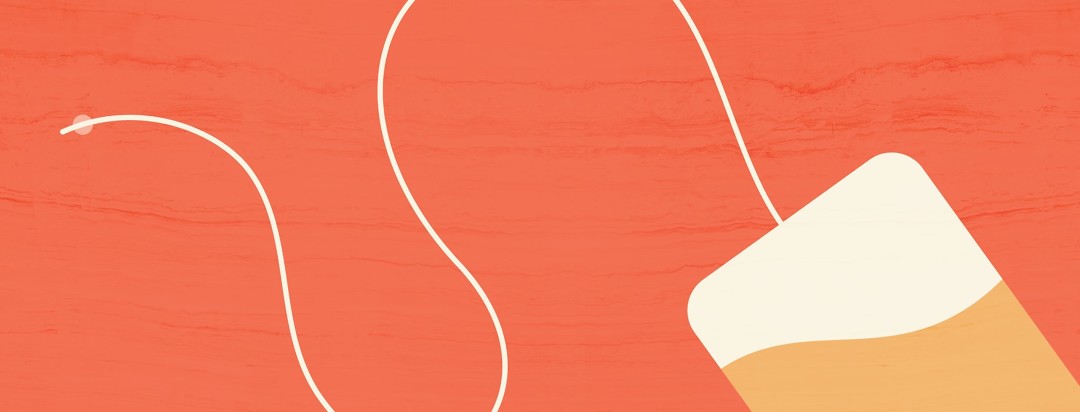The Catheter
When I had my bladder cancer removed last year, the doctor warned me that I would need to wear a catheter bag for a few weeks after surgery to give my bladder a chance to heal.
I already knew my way around catheters
Weirdly, I was kind of excited about this. In an odd twist of fate, I already knew my way around catheters quite a bit. Five years ago, my youngest child was born with a birth defect called spina bifida, which can cause a range of other defects including neurogenic bladder. My son, having spina bifida and neurogenic bladder, uses a catheter to remove his urine four times per day. So when the doctor told me I'd be using a catheter following surgery, I was actually kind of stoked. I joked that my son and I could be “catheter twins.” I marveled that we'd both be using the same prescription medication to prevent bladder spasms. I already knew the best maxi pads on the market to prevent leaks. It was a relief to be dealing with something familiar, amidst all this new, scary, cancer stuff.
But to my surprise, the catheter turned out to be one of the hardest things to deal with during recovery.
How my catheter worked
The way my catheter worked was like this: the doctors inserted a thin, long plastic tube into my bladder so my urine could drain without my bladder having to contract. Instead of peeing into a toilet, the urine just emptied out the tube and into a bag that was affixed to my leg. When the bag got full, I would pour the urine out of a valve and empty it into the toilet. (For comparison's sake, my son is straight-cathed, meaning he doesn't wear a permanent catheter and it doesn't drain into a bag. The catheter is used to drain urine and then immediately removed and thrown away. I begged the urologist to let me use that system instead, but alas, no dice.)
It sounds easy in theory
In theory, wearing a catheter sounds easy – you don't actually have to do anything except empty the bag when it gets full. But in reality, it gets weirdly uncomfortable. For one thing, there's a tube coming out of your urethra. And while it doesn't hurt, exactly, it's still a tube sticking out of your urethra, which is a strange sensation and not altogether comfortable. Just the thought of having something stuck in my urethra was enough to make me shudder.
To add insult to injury, it was also kind of embarrassing. More than once, I accidentally emptied my valve and splashed pee all over myself. More than once the bag got so heavy it fell off my leg harness and sploshed onto the floor. More than once, my very young children told complete strangers about my pee-bag while we were in public.
A daily reminder
While the catheter wasn't an enormous hassle, it was a daily reminder that my body wasn't where it needed to be. It was a reminder that I was sick, that I had a long way to go in terms of recovery, and that despite my young age (not even out of my twenties when I was diagnosed) that I was mortal. The catheter symbolized a lot of things, and I wanted it gone. In the end, it was three weeks of being catheterized before I finally had permission to get it removed, and I came out of the urologist's office absolutely elated.
A small price to pay
Having a catheter for three weeks was not my favorite thing in the world. But it also was a stark reminder that my cancer journey could have been (and could someday be) much more prolonged than it was. While some patients need to keep their catheters in longer, or face bladder reconstruction or removal, I got off relatively Scott-free. It's something I don't take for granted.
Looking back I would tell myself this: The catheter will help you enormously by healing your bladder from a massive trauma (surgery). But at the same time, let's face it – you have a bag of hot urine strapped to your leg for three weeks, and it's OK to resent that. Try to live in the moment. In the grand scheme of things, three weeks is not that long. And in the end, it's a small price to pay for a healthy bladder. Know that, and be grateful.
Community Poll
Have you taken our In America survey yet?

Join the conversation